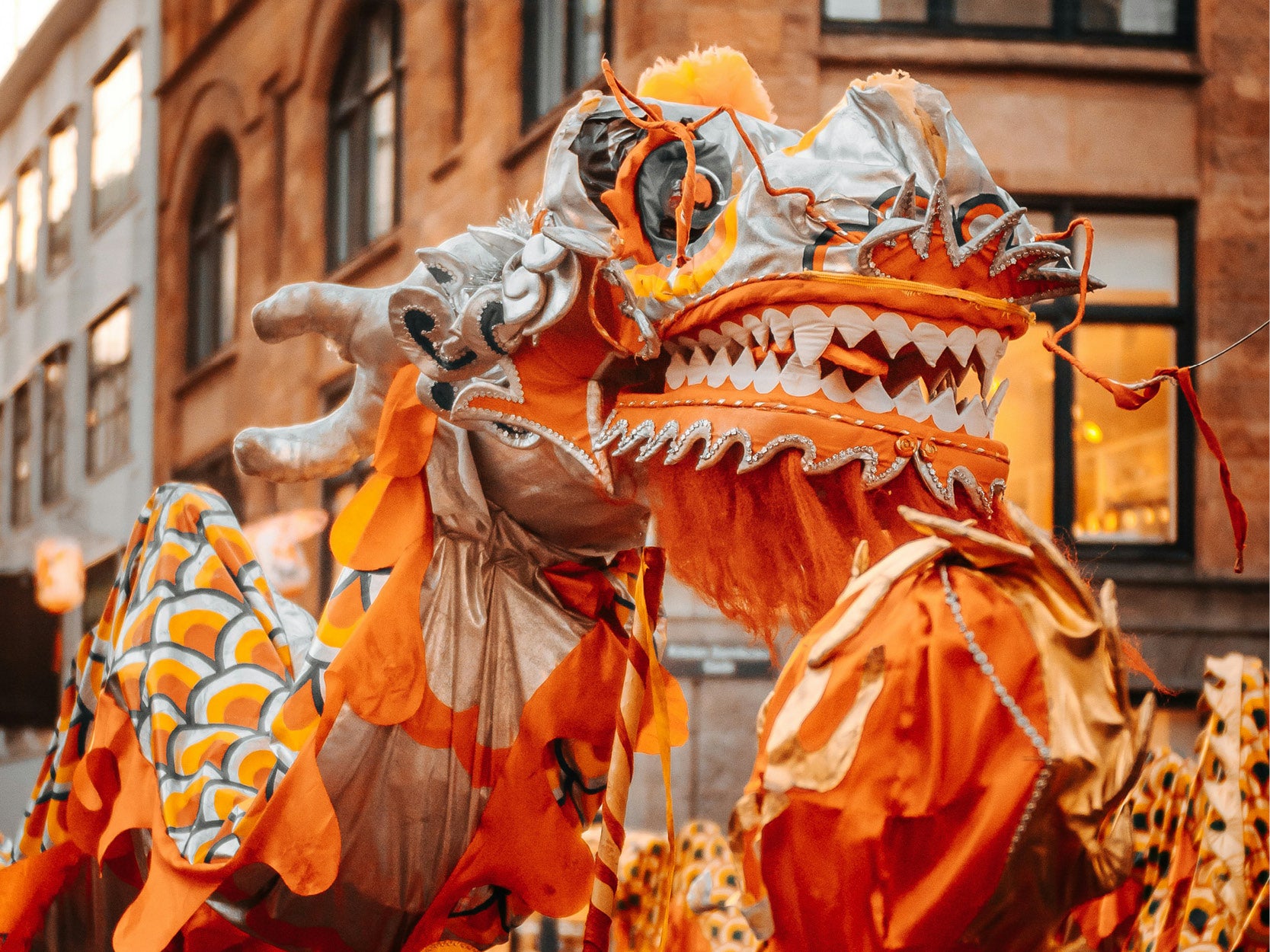The Chinese zodiac is divided into a 12-year cycle, with a different animal representing each year. Those born in a Year of the Dragon are supposedly destined for good fortune and greatness.
As the beginning of the Lunar New Year dawns, we chatted to Nicole Zhang and Claire Chen from the Bondi Wash China team about the significance fof the dragon and the vibrant customs that accompany the New Year.
2024 marks the Year of the Wood Dragon.
The Chinese dragon ("Loong" in Chinese) represents the most powerful and only mystical creature of the twelve Chinese zodiacs.
"It embodies auspiciousness and strength, serving as a collective representation of imagination and creativity," - Nicole, Senior Marketing Manager for Bondi Wash in Shanghai.
Renowned as the creature that brings the most luck, the Year of Dragon is thought to signify a year of opportunities, making this New Year one that is highly anticipated and celebrated.
"It is a year for new beginnings and growth. People are encouraged to be creative and courageous. It is often a year that brings new businesses… and new babies. Every parent hopes their child will be born a ‘dragon’ – it’s thought to produce natural leaders and bring good fortune to the whole family" - Claire, Marketing Director for 1010 HOPE in Shanghai.
The Dragon is also a symbol of strength - it has represented imperial power since ancient times in China. The Emperor wears a dragon robe, symbolising their power and authority.
"Chinese people feel very affectionately towards the dragon. We refer to ourselves as "descendants of the dragon". There is even a popular song that will be played all through this year, "龙的传人" that translates to ‘Descendants of the Dragon’. - Claire.
The Lunar New Year is laden with traditional customs, centered around removing the old and welcoming in the new.
Cleansing the home:
Families will engage in some impressive 'spring-cleaning' ahead of the New Year, referred to as 'sweeping the dust'.
"It represents a wish to put away old things. It's a big farewell to the old year and a welcome to the New Year", says Nicole.
Hanging the 'fu':
After cleaning, people will decorate the house to welcome the New Year.
"One, hugely popular, is to hang the Chinese character fu (fortune, bliss) upside down on prominent places. It works as a pun, prompting visitors to remark: “Your fu is upside down.” Since “upside down” in Chinese sounds like “arrive”, the comment doubles to mean, “Fortune arrives [at your home]” – a New Year greeting to the household." - Nicole.

New Year's Eve:
The New Year’s Eve feast is a 'must have' dinner with all family members reuniting. Chinese try very hard to make this family event, often traveling long distances.
People from north and south China eat different foods on the occasion, and many New Year foods are symbolic. In northern China a traditional dish for the feast is jiaozi (dumplings), shaped like old Chinese ingots to symbolise wealth. Southern Chinese eat niangao (sticky rice cake), because niangao sounds like “yearly higher”, symbolising improvement.
"There is definitely no going to bed early. It is a night for family, food and we gift red envelopes. It is common as the night goes on to play rounds of Majiang ("Mah Jong"), where we gamble the money received. Fireworks are launched at midnight to bring good luck for the year." - Claire.
Lunar New Year's Day:
On the first day of the New Year, Chinese put on new clothes and wish each other good luck and happiness in the New Year. Young people visit their elders, and wish them health and longevity.
Ancestor worship varies widely across China — from sweeping tombs in the wild to worshiping ancestors in temples. Many (especially rural) people offer sacrifices to their ancestors in the main hall of the house, where an ancestor altar is displayed. Then family members kneel and bow in front of the shrine offering scarificies to show respect to departed relatives, from the oldest to the youngest. It is believed that ancestral spirits will protect their descendants and make them prosperous.
"Those who believe in the zodiac will discover their predications for the New Year, granted based on each animal sign. Some animals proclaimed as ‘winners’, with much luck to come, others will be warned to act with caution." - Claire.



































